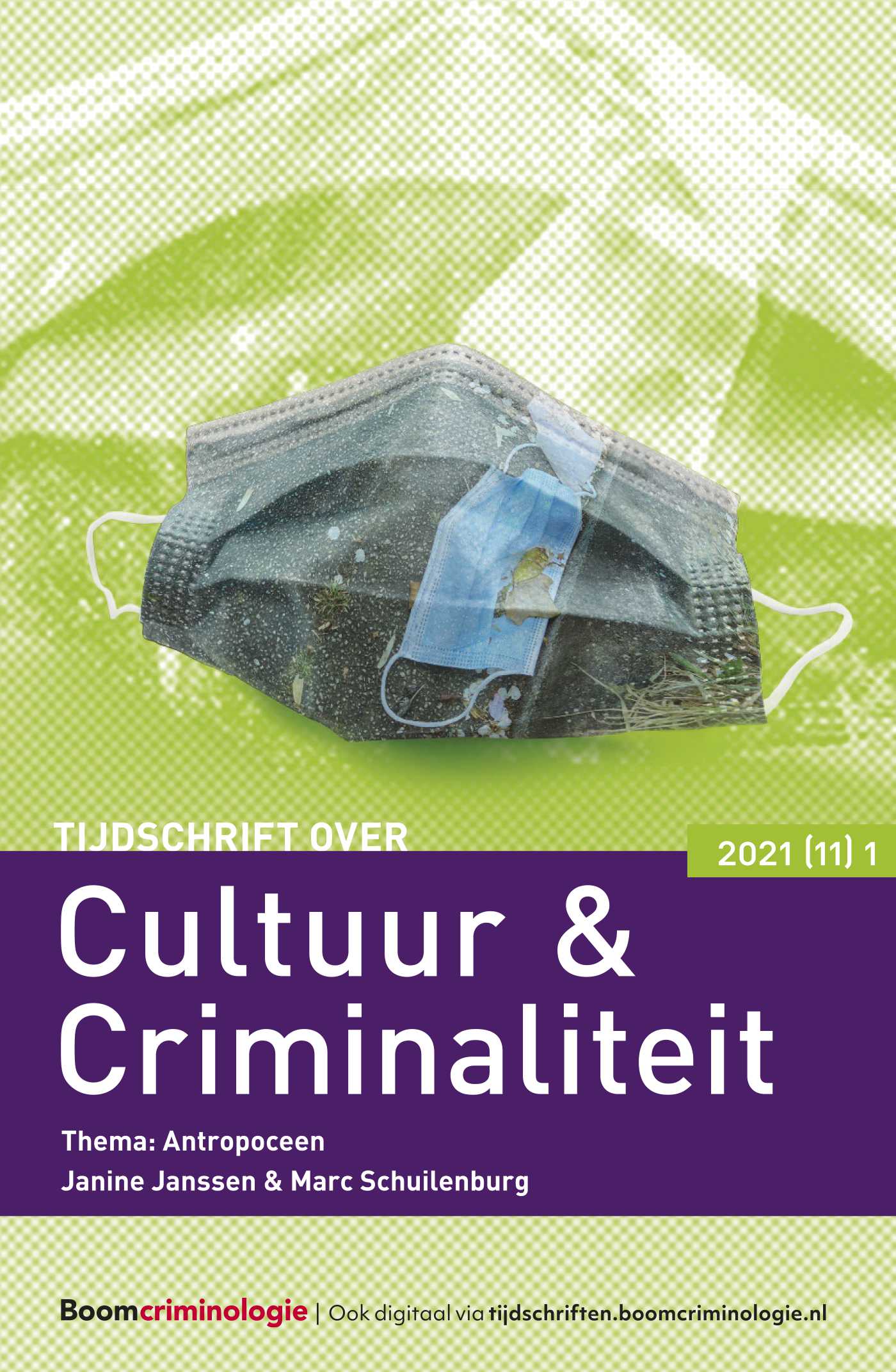|
Criminologists have by and large sought to explain crime by the deficiencies people may have. It took till the 1970s until the idea that crime can also be caused by structural power inequalities got an actual name in criminology: crimes of the powerful. Starting with the works of Willem Bonger and Edward Ross in the early 20th century, the author analyses how critical criminologists like Frank Pearce introduced the term ‘crimes of the powerful’ in the 1970s and how this concept was subsequently applied to gender- and racial inequalities, state crime, corruption et cetera, whilst pointing at the topical relevance of using a lens of ‘crimes of the powerful’ as a sensitising concept to analyse present-day problems, ranging from sexual abuse in the Roman Catholic church to the banking sector or indeed the expropriation of indigenous lands in the Amazon by soy-farmers and timber traders. |


Tijdschrift over Cultuur & Criminaliteit
Over dit tijdschriftMeld u zich hier aan voor de attendering op dit tijdschrift zodat u direct een mail ontvangt als er een nieuw digitaal nummer is verschenen en u de artikelen online kunt lezen.
| Artikel |
|
| Trefwoorden | crimes of the powerful, white collar crime, hate crime, eco crime, ‘lawful but awful’ |
| Auteurs | Prof. dr. René van Swaaningen |
| SamenvattingAuteursinformatie |
| Artikel |
Top-down and out?Reassessing the labelling approach in the light of corporate deviance |
| Trefwoorden | labelling, corporate crime, moral entrepreneurs, peer group, late modernity |
| Auteurs | Anna Merz M.A. |
| SamenvattingAuteursinformatie |
|
Multi-national corporations are increasingly facing attention and disapproval by different actors, including authorities, public and (non-) commercial organizations. Digital globalization and especially social media as a low-cost, highly interactive and multidirectional platform shape a unique context for this rising attention. In the literature, much attention has been devoted to top-down approaches and strategies that corporations use to avoid stigmatization and sanctioning of their behaviour. Reactions to corporate harm are, however, seldom researched from a labelling perspective. As a result, corporations are not considered as objects towards whom labelling is targeted but rather as actors who hamper such processes and who, as moral entrepreneurs, influence which behaviour is labelled deviant. Based on theoretical analysis of literature and case studies, this article will discuss how the process of labelling has changed in light of the digitalized, late-modern society and consequently, how the process should be revisited to be applicable for corporate deviance. Given a diversification of moral entrepreneurs and increasingly dependency of labelling and meaning-making on the online sphere, two new forms of labelling are introduced that specifically target institutions; that is bottom-up and horizontal labelling. |
| Artikel |
Researching elites at the margins of research ethics frameworks |
| Trefwoorden | code of ethics, corporate crime, research ethics, gaining access, interviewing elites |
| Auteurs | Daniel Beizsley PhD |
| SamenvattingAuteursinformatie |
|
For social scientists undertaking critical research on elites in organisational contexts securing access is a challenging exercise that may rely on the use of several access strategies over extended periods. This process is further complicated by the existence of research ethics frameworks that establish boundaries to access strategies, posing dilemmas on how to best balance access needs with a commitment to ethical practices. This article focuses on such dilemmas – or the ‘ethics of access’ – through a reflection on PhD fieldwork during 2016-2017 in Luxembourg spent researching the European Investment Bank. The paper will conclude by calling for an overhaul of existing frameworks in order to foster more research on elites. |
| Artikel |
The concept of violence in (times of) crisisOn structural, institutional and anti-institutional violence |
| Trefwoorden | structural violence, institutional violence, anti-institutional violence, economic crisis, Greece |
| Auteurs | Marilena Drymioti |
| SamenvattingAuteursinformatie |
|
Attempting to understand the Greek narrative of crisis, this paper examines the most prominent forms of violence that emerged in the period of acute economic recession and political upheaval in Greece namely structural, institutional and anti-institutional violence. This paper aims to highlight existing theoretical gaps and avoid common fallacies of the current body of knowledge. In contrast to some of the more common features of the discussion on violence, this note sets out to: a) acknowledge that violence is not necessarily a physical act, b) acknowledge that the outcomes of violence performances might not be physical either, c) specify and adequately distinguish agency and structural dynamics and d) address the cultural and contextual aspects of violence. Vital to this endeavor is to acknowledge, identify and understand the interactive relation between different forms of violence that emerge during the same period of time in a context in which conflict escalates. |
| Artikel |
Integratief seksindustriebeleid in Nieuw-ZeelandSucces voor een unieke sociale beweging |
| Trefwoorden | sekswerk, Nieuw-Zeeland, decriminalisering, sociale beweging, beleidsverandering |
| Auteurs | Dr. Joep Rottier |
| SamenvattingAuteursinformatie |
|
Contrary to its allies in other countries, the sex industry decriminalization movement in New Zealand, embodied by the New Zealand Prostitutes Collective (NZPC), achieved its goal in 2003. This article explores the reform of the sex industry policy in this country on the basis of a Social Movement Concept. Apart from the specific New Zealand culture, particularly the interaction between three social political aspects – awareness, political opportunities, and a strong social movement organisation – can be identified as crucial factors in realizing a decriminalized sex industry environment. The enactment of the Prostitution Reform Act 2003 meant a unique and huge success for a small sex workers movement. |
| Voorbij de horizon |
Babylon Berlin, een ‘must’ voor de culturele criminologie |
| Auteurs | Prof. dr. Marc Cools |
| Auteursinformatie |
| Significant others |
Over (kritische) criminologie in Sovjet- en post-Sovjet-Rusland |
| Auteurs | Prof. dr. Dina Siegel |
| Auteursinformatie |

